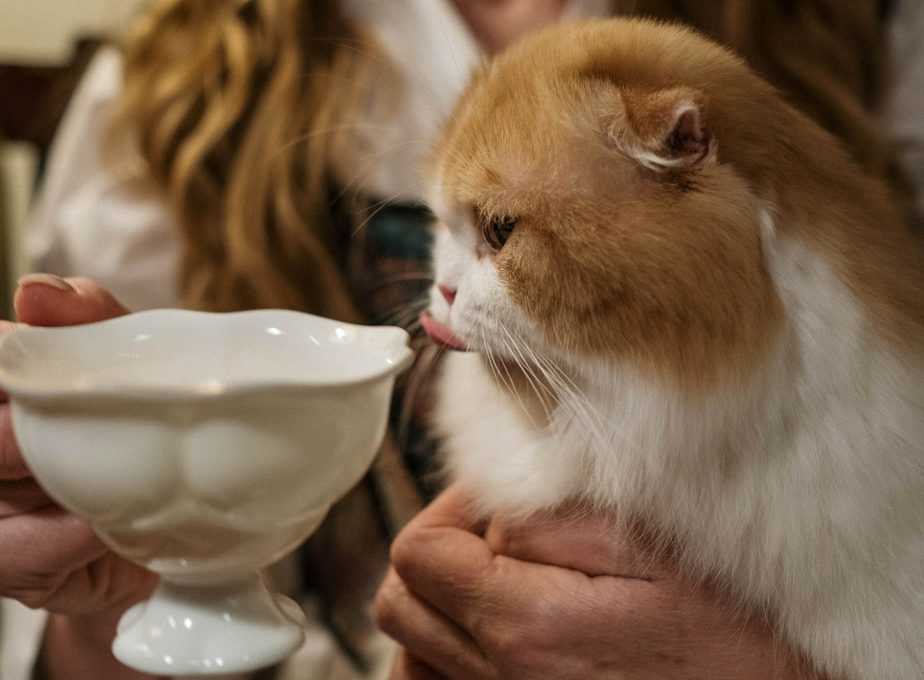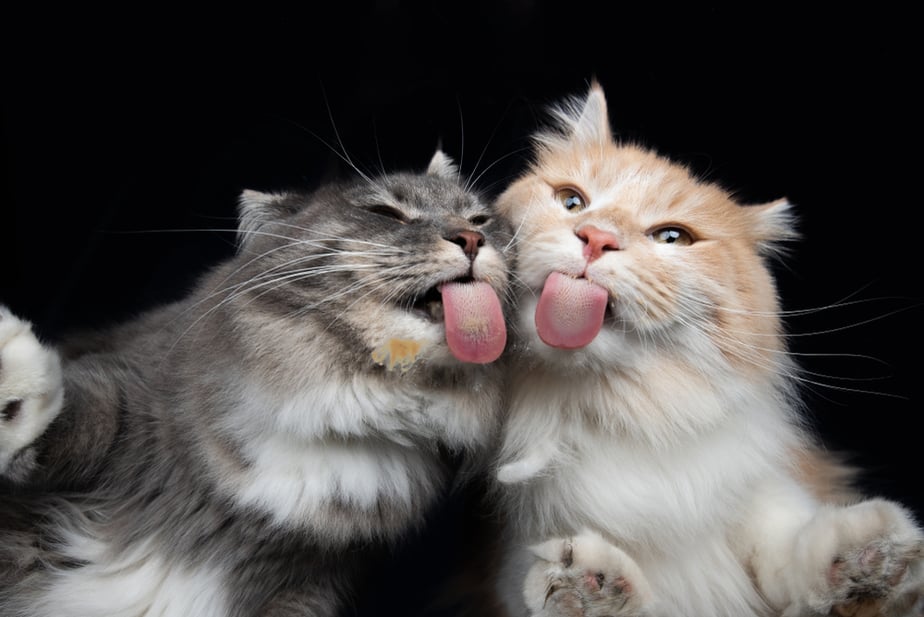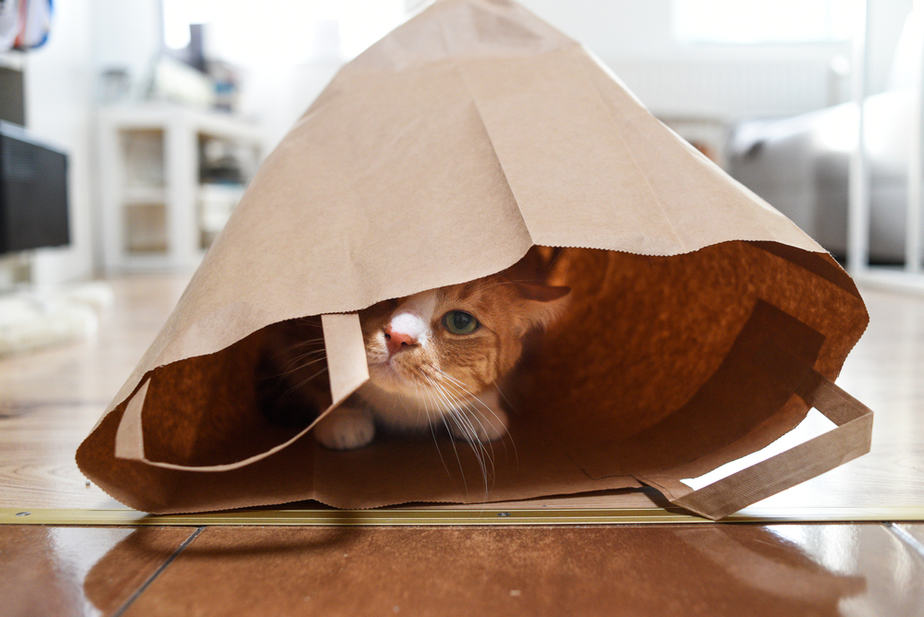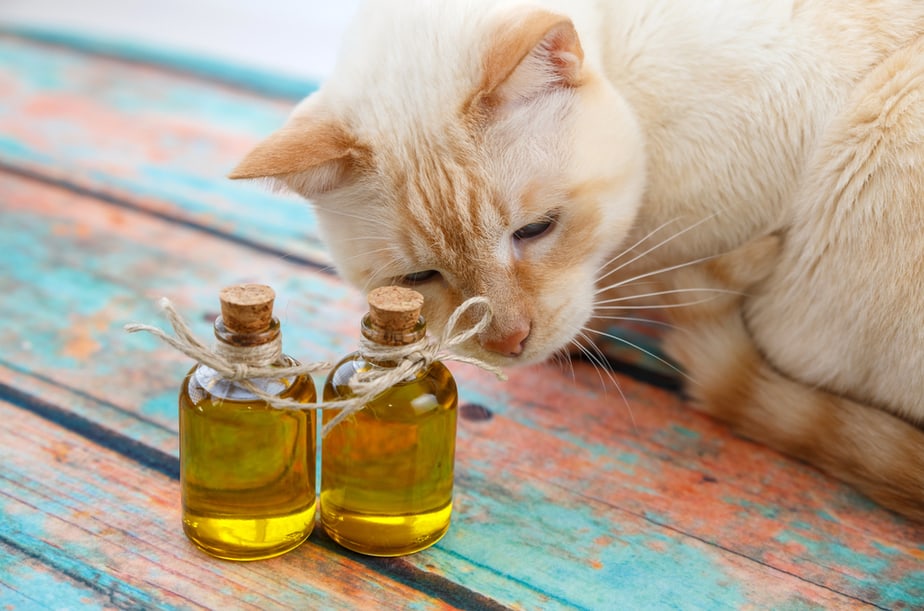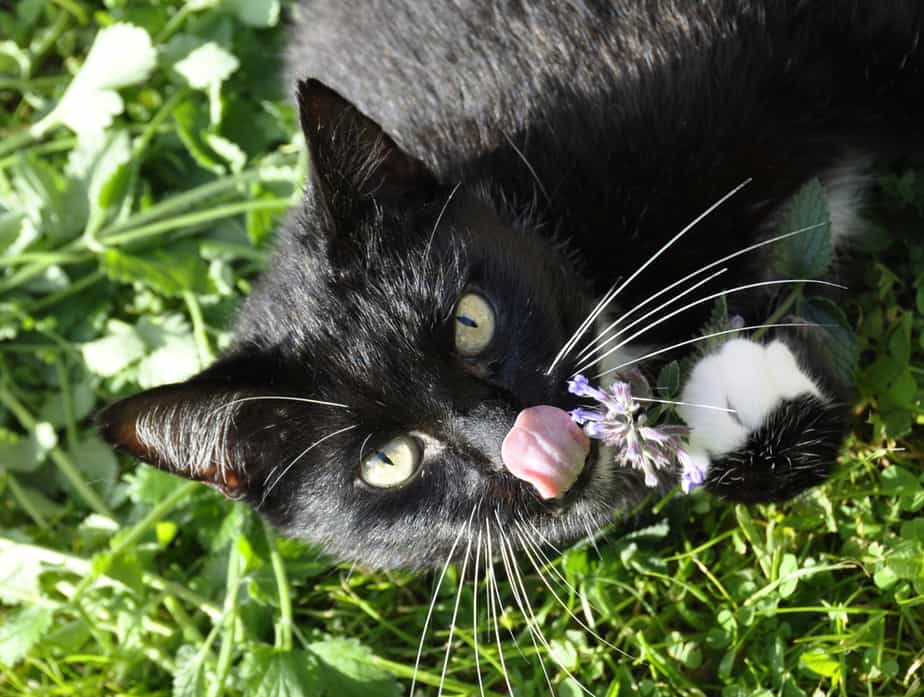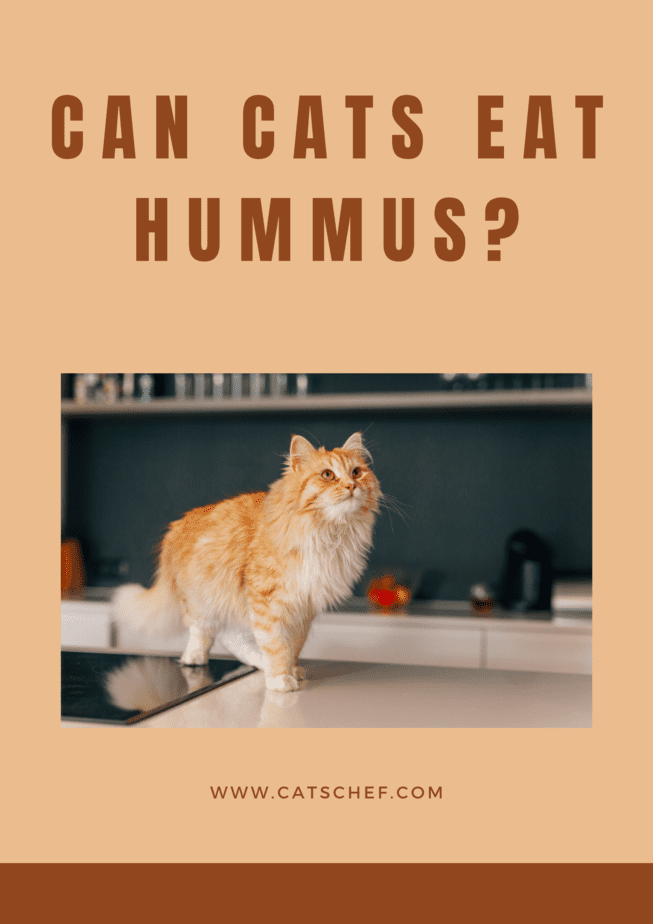📖 Table of Content:
You pop open the last container of hummus and prepare some baby carrots for a delicious midnight snack when you hear the sound of tiny paws tapping against the wooden floor. Oh no, you weren’t careful enough and your mischievous monster heard you! Can cats even eat hummus!?
This Middle Eastern spread is one of your favorites, so you shouldn’t be surprised when you notice your cat throwing curious glances at it. Hummus is pretty healthy for humans, so surely your trusty sidekick could give it a lick or two, right?
Smaller amounts of this tasty treat won’t do any harm, but…
You shouldn’t rely on hummus to enrich your feline friend’s regular diet. Unfortunately, hummus is packed with ingredients that might cause harm to your cat’s digestive system if eaten in excessive amounts. Chickpeas, tahini, garlic, and lemon juice are only some of the culprits to blame!
If your feline friend’s a big fan of hummus, you can try making it yourself. There’s only one catch – homemade hummus without the unfavorable ingredients might end up tasting like a regular veggie spread. And trust me, your cat couldn’t care less about vegetables but there’s no harm in trying!
Can cats eat hummus? The good, the bad, and the ugly
Hummus is a mouth-watering spread made from chickpeas, tahini, garlic, lemon juice, and a bunch of flavourful seasonings. If you’re wondering whether cats can eat hummus, you should look into the ingredient list and check whether it contains anything that might harm your precious pet.
So, let’s dive in!
1. Chickpeas
These delicious balls are one of the main ingredients of hummus. They’re packed with protein and fiber which makes you wonder whether they’re good for your furbaby, too. Wonder no more, chickpeas are one of those superfoods that get a passing grade in the feline world.
However, they shouldn’t be a regular addition to your cat’s diet. Cats are obligate carnivores, which means they thrive on animal protein. While chickpeas do contain a substantial amount of protein, it’s not the kind your precious pet needs in her everyday life.
Not only that, chickpeas can be pretty tough on your cat’s digestive system. They contain antinutrients that wreak havoc on your cat’s body and prevent her from absorbing essential nutrients. They also contain oxalic acid, which can trigger food allergies and lead to kidney disease. Yikes!
2. Tahini
This sesame seed paste isn’t the worst thing you can feed to your cat. It contains lots of dietary fiber, minerals like zinc, calcium, and magnesium, as well as nourishing gut-friendly bacteria.
Not only that, tahini can lower the risk of inflammatory and heart diseases, relieve constipation, help with weight management, and promote healthy bones. Luckily for you, this nutritious paste isn’t toxic to cats, but again, you shouldn’t make a regular habit of feeding it to your furchild.
Tahini is pretty high in fats, which can upset your cat’s stomach, lead to other gastrointestinal issues, as well as feline obesity. There’s no reason to panic if your cat has a lick or two of tahini (or in most cases, even hummus), but you should make sure not to feed it to her in excessive amounts.
When it comes to whether cats can eat ingredients in hummus, tahini isn’t one of them you should be worried about. Not only can it offer an array of nutritional and health benefits to your precious pet, but it can also serve as a delicious treat when you’re looking to enrich your cat’s otherwise boring diet.
3. Lemon juice
Unfortunately for your hummus-loving friend, all citrus fruits are mildly toxic to cats. Grapefruit, oranges, limes, and lemons contain harmful compounds that can become poisonous to your cat if consumed in sufficient quantities.
Most mischievous monsters are put off by the smell of citrus, which means they won’t eat lemons willingly. But, if they’re contained within other foods, your cat might not be able to detect the scent, which can cause serious problems later on. Trust me, she wouldn’t eat hummus if she knew what was in it!
Unfortunately, if your cat happens to ingest excessive amounts of lemon juice, she might experience citrus poisoning. Keep an eye out for symptoms like vomiting, diarrhea, excessive drooling, weakness, and lethargy. Not only that, if it gets on her fur, she might develop skin irritation and rashes.
If your cat ingests lemon juice or anything else containing citrus, look for any symptoms of citrus poisoning and contact your vet immediately. If she’s experiencing severe symptoms, get to your vet or the nearest emergency animal care center. It’s best to be on the safe side!
4. Olive oil
While olive oil isn’t toxic to cats, it might not be the best idea to include it in your precious pet’s regular diet. Consuming too much oil can cause an array of problems in your cat’s body, starting with digestive issues and going all the way to feline obesity. And hummus contains lots of olive oil!
Let’s get one thing out of the way. If you love preparing homemade food for your feline friend and you happen to use olive oil for cooking, you have nothing to worry about. Olive oil can only be harmful to your cat if consumed in excessive amounts. If your cat loves olives… get her out of the kitchen!
In short, olive oil isn’t the most harmful hummus ingredient. If your furry sidekick manages to eat an entire container of hummus while you’re too busy staring at the TV, olive oil should be the least of your concerns. While it doesn’t bring many benefits to a feline’s table, it’s not labeled as toxic.
5. Garlic
Your mischievous monster might not be a vampire, but you shouldn’t be surprised if she loses her composure at the sight of garlic. This member of the Allium family is extremely toxic to your cat and you should avoid feeding her anything containing garlic, including hummus!
What makes garlic so bad? All Alliums (including garlic, onions, leeks, chives, etc.) contain compounds called disulfides and thiosulphates.
These compounds can cause serious damage to your cat’s red blood cells. Even if she consumes it in small amounts, garlic consumption can lead to feline anemia.
If your cat eats an entire container of hummus, she might experience garlic poisoning. You should keep an eye out for symptoms of vomiting, diarrhea, fatigue, breathlessness, paleness of the gums, and loss of consciousness.
Unfortunately, these symptoms might not appear for several days after garlic ingestion. You should contact your vet as soon as you notice a change in your cat’s behavior or appearance.
It’s very difficult to detect garlic poisoning, so if you have any reason to believe your cat ingested large amounts of hummus or other food containing garlic, make sure to contact your vet and ask for advice.
6. Herbs and spices
When determining what your cat can and cannot eat, you shouldn’t forget about the various hummus alternatives available on the market. Each of them contains different flavourful ingredients that might cause harm to your cat’s digestive system.
Roasted red pepper hummus, creamy avocado hummus, black bean hummus – your little rascal might get her paws on any of these and you should be prepared to react accordingly. Your cat shouldn’t consume excessive amounts of red peppers, avocado, beans, and most herbs and spices.
Herbs like basil, rosemary, and dill are usually added to spice things up a bit, and if you catch glimpse of these on the ingredients list, you shouldn’t worry. These herbs are completely safe for feline consumption!
On the other hand, oregano, lemongrass, and mint are causes for concern.
Lastly, cats don’t mix well with salt and other spices. If you want to keep your feline friend happy and healthy, you might want to stick to bland cat food.
Salt can make your cat dehydrated and thirsty, while anything with a bit of kick to it might lead to serious gastrointestinal issues.
My cat ate some hummus! What should I do?
Cats can eat hummus (if only a bit)! If you make sure your precious pet has no more than an occasional lick or two instead of adding it to her regular diet, hummus shouldn’t cause any serious issues.
All these harmful ingredients shouldn’t pose much danger unless they’re eaten in sufficient amounts.
So, if your cat happens to eat some hummus, no need to panic. If she did eat too much, keep an eye out for any symptoms of food poisoning, and feel free to contact your vet. Even if she seems fine, you’ll feel better knowing your vet is up to date with the situation.
It goes without saying, but if you find a way to avoid ingredients like garlic or chives, you should definitely do it. You might want to make some homemade hummus using chickpeas (which are okay in smaller amounts), steamed broccoli and carrots, and herbs like basil or rosemary.
You might be thinking ”That’s not hummus!” and you would be correct. Here’s my defense – if your furry friend’s a huge fan of hummus, chances are she only likes it because she sees you eat it all the time. If you make this cat-friendly version, I promise you she won’t notice the difference!
